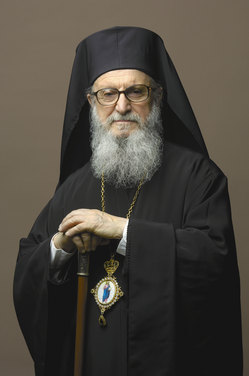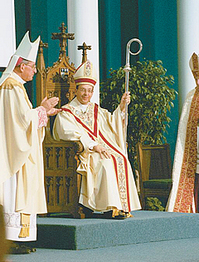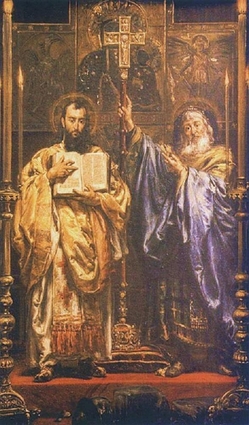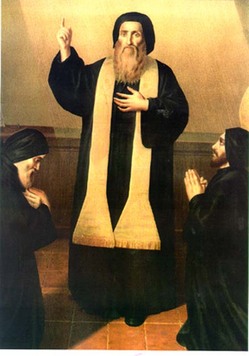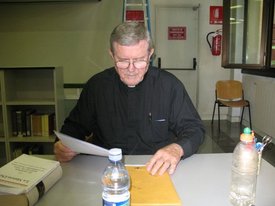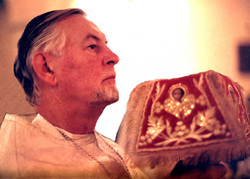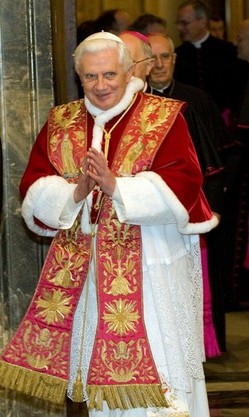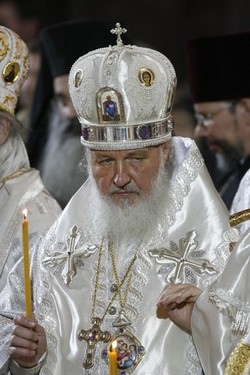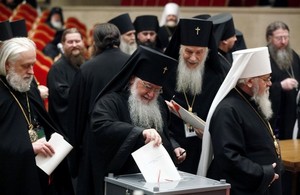Great News! Today, the Holy Father nominated Reverend Father
Cyril Vasil, SJ, until now the rector of the Pontifical Oriental Institute, as
the Secretary to the Congregation for Eastern Churches, raising him to the
dignity of archbishop.
Archbishop-elect Cyril Vasil was born in 1965 (in Slovakia),
ordained a priest in 1987, entered the Society of Jesus in 1990 taking solemn
vows in 2001. In 1994 he earned a doctorate in Canon Law from the Pontifical
Oriental Institute. He has a working knowledge of 11 languages.
In 2002, Cyril Vasil was elected dean of the faculty of
Oriental Canon Law and in 2007 he was named rector of the Pontifical Oriental
Institute. He is the first rector of the PIO to be of the Byzantine Catholic Church.
Among his responsibilities for the Church he is a consultor
for the Congregations of Eastern Churches, Doctrine of the Faith and Pastoral
Care of Migrants. Moreover, he was an expert for the 2005 Synod of Bishops on
the Eucharist. And he’s been active in the International Union of Scouts of
Europe being named a spiritual advisor in 2003.
I can say that this is an excellent choice for the Church: he’s
affable and competent. With Archbishop Vasil’s appointment there are now two Jesuits in prominent positions in the Roman Curia, both are archbishop secretaries. It is also interesting to note that the new archbishop is the first in history working as a Vatican official to be the son of a married Catholic priest of Slovak Greek-Catholic Church, the vast majority of whose clergy are married family men in accord with the age-old (and fully salutary) tradition in the Byzantine East, Catholic and Orthodox. His father, Michael, was ordained by Blessed Vasil Hopko.




